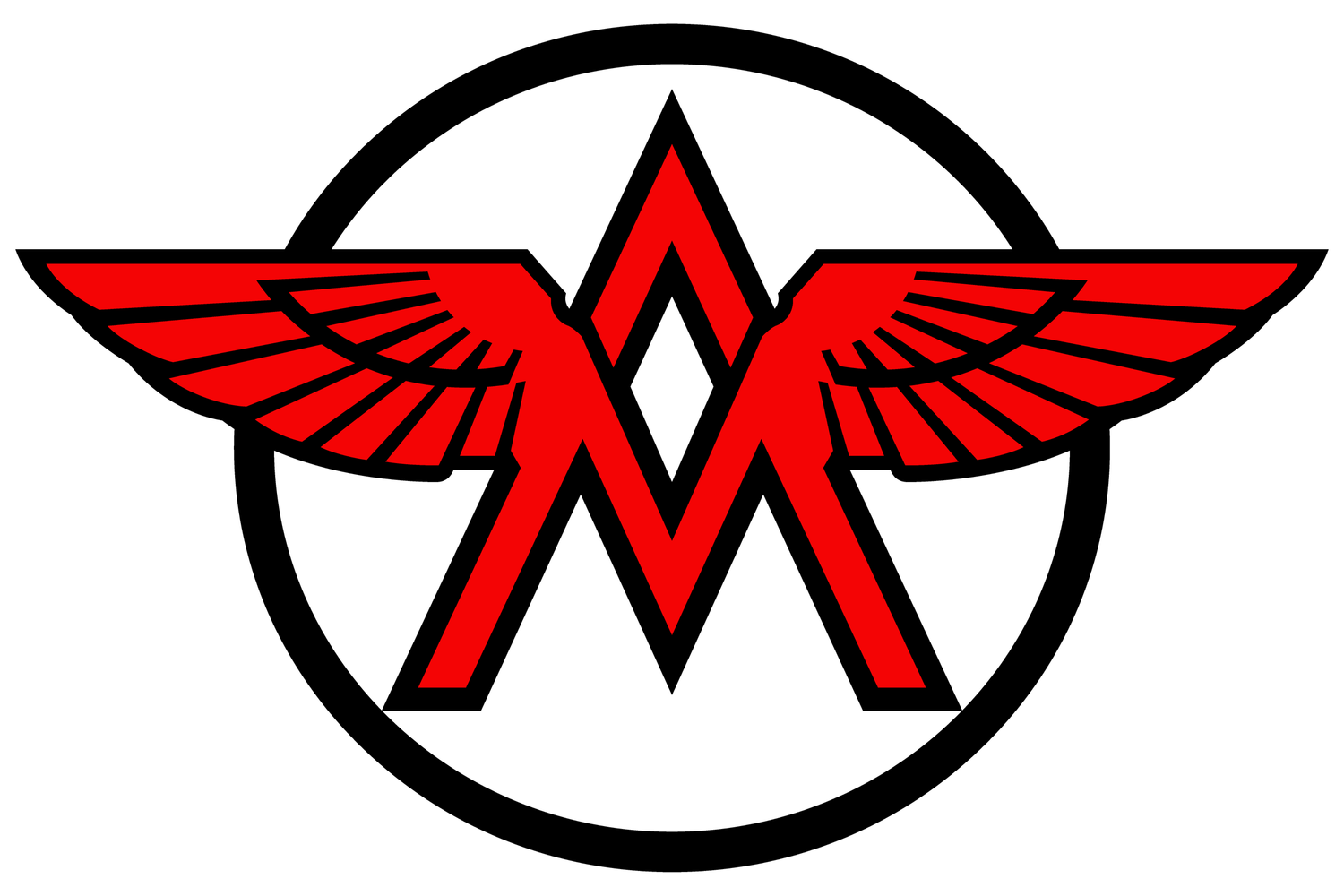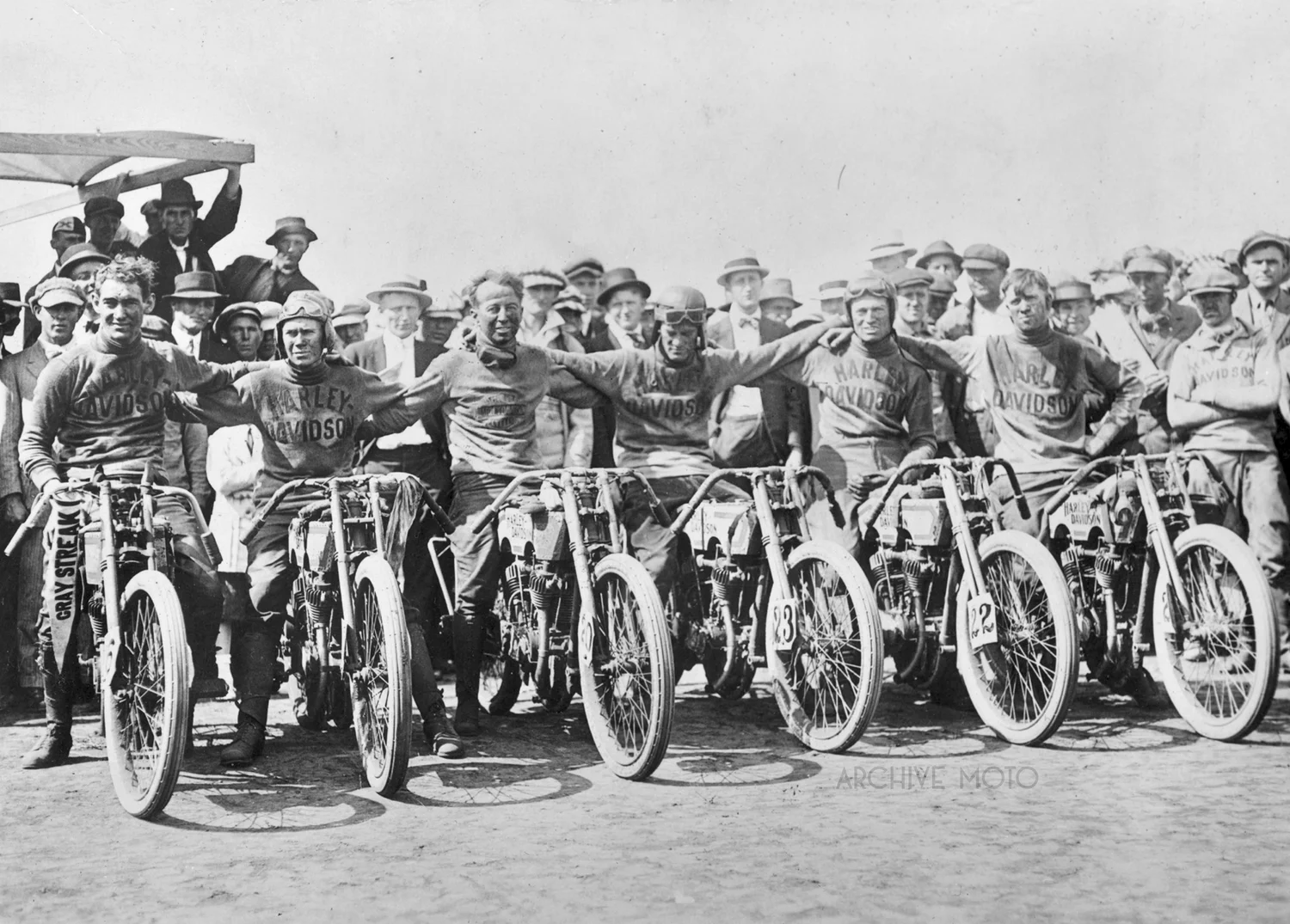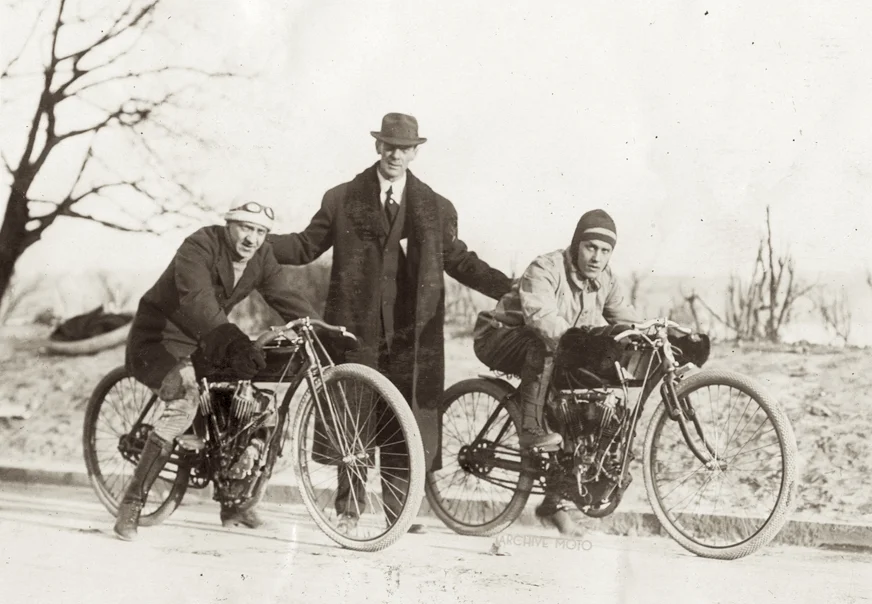Arthur G. Chapple and Walter Goerke, two of America’s finest motorcycle racers are seen here posing just before a hill climb competition in December 1909. True pioneers of both the sport and the culture, Chapple and Goerke can be counted amongst the most influential of American motorcycling’s founding fathers. The two friends from Brooklyn began their love affair with motorcycles as soon as the new machines first appeared in stateside.
Imagine being a 14 year old boy in 1908 holding down a job waiting tables in Denver to help support your family. You have a bicycle, and bicycle racing has never been so popular, so you begin entering into amateur competitions, pocketing a little extra scratch when you win. You are good, and over the next couple of seasons quickly move up the ranks in the local scene, winning more and more and garnering a good bit of attention. So much so that the local super star bicycle champion takes you under his wing. There is a shift happening though, towards the increasingly present and capable motorcycle which your new mentor has already taken to quite successfully. He introduces you to the new machines and begins pacing you on his motorcycle at the big money events until ultimately you too to make the transition into the sport of motorcycle racing. Right at that moment two new venues are built in your hometown, large, circular, wooden stadiums constructed specifically for racing motorcycles. The timing couldn’t be better. Still a teenager, and a novice motorcycle rider at that, you begin your career on the boards of the treacherous motordrome. Such was the case for a young Denver boy named Maurice Leon Fredericks, but by the time he began racing motorcycles in 1911 everyone knew him simply as Curley.
Even in modern times it is rare to find a professional athlete who’s career lasts for decades, but when looking back to the earliest days of professional American motorcycle racing, finding a career that lasted more than 10 years is quite a challenge. For most who dared to compete in these first, raw years of the sport retirement was reserved for only the most skilled and lucky, and the career of pioneer motorcycle racers was most often recorded in lifespan than tenure. The title of the most durable pioneer American motorcycle racer, and perhaps without question one of the most prolific goes...
A shot of the Indian Sales Company located at 223 West Liberty Street in Savannah, Ga. ca. 1927. The gentlemen running this new operation are posing with a sharp lineup of fresh Indian’s, including the Springfield company’s latest 4 cylinder, the product of Indian’s most recent acquisition of the Ace Motor Corporation. Joseph Neely, who is pictured with his 4 year old son Joseph Jr. on the far right, was the owner of Savannah’s newest establishment. A local businessman and motorcycling enthusiast, Neely had been piloting motorcycles through the low country for years before opening his own shop.





